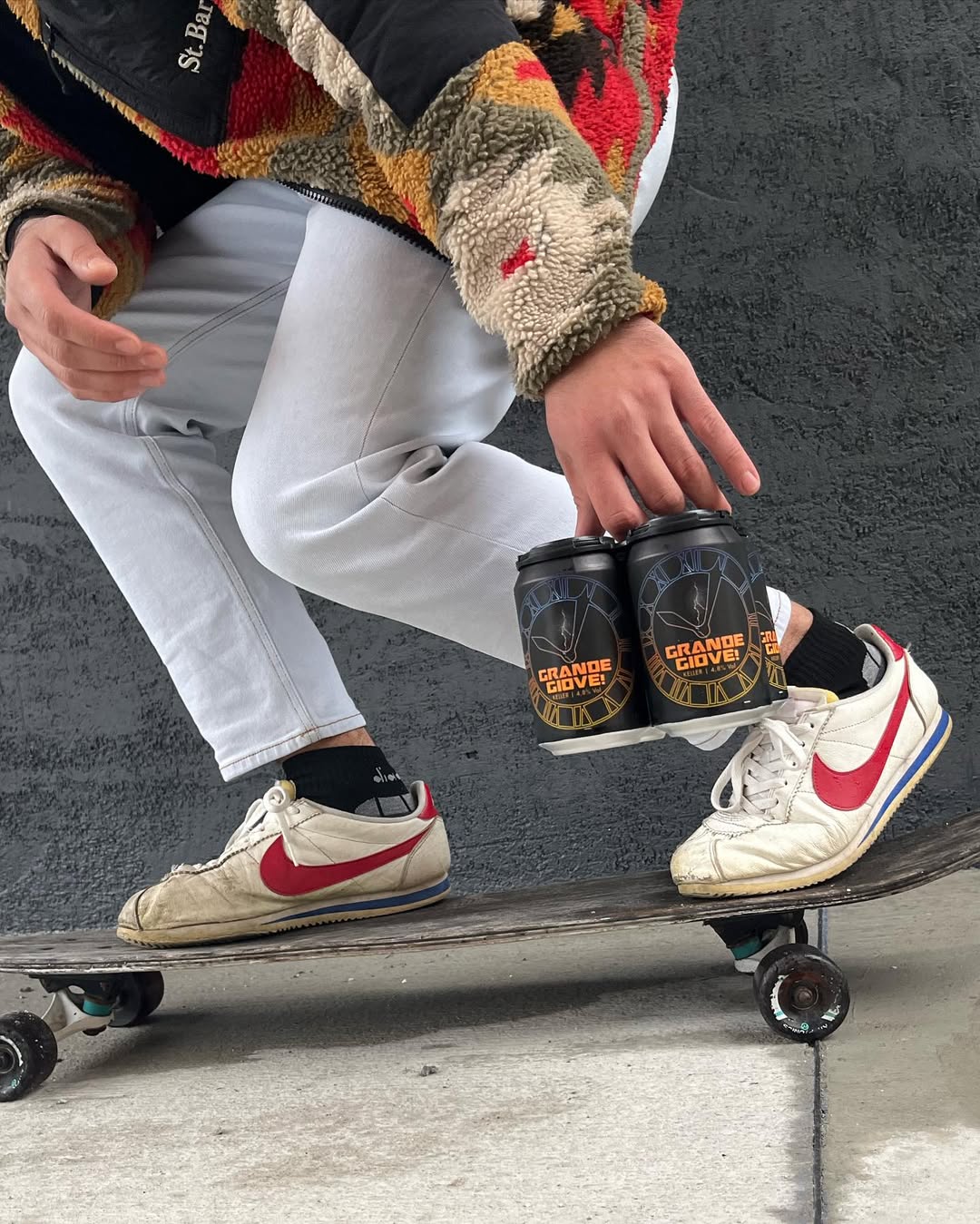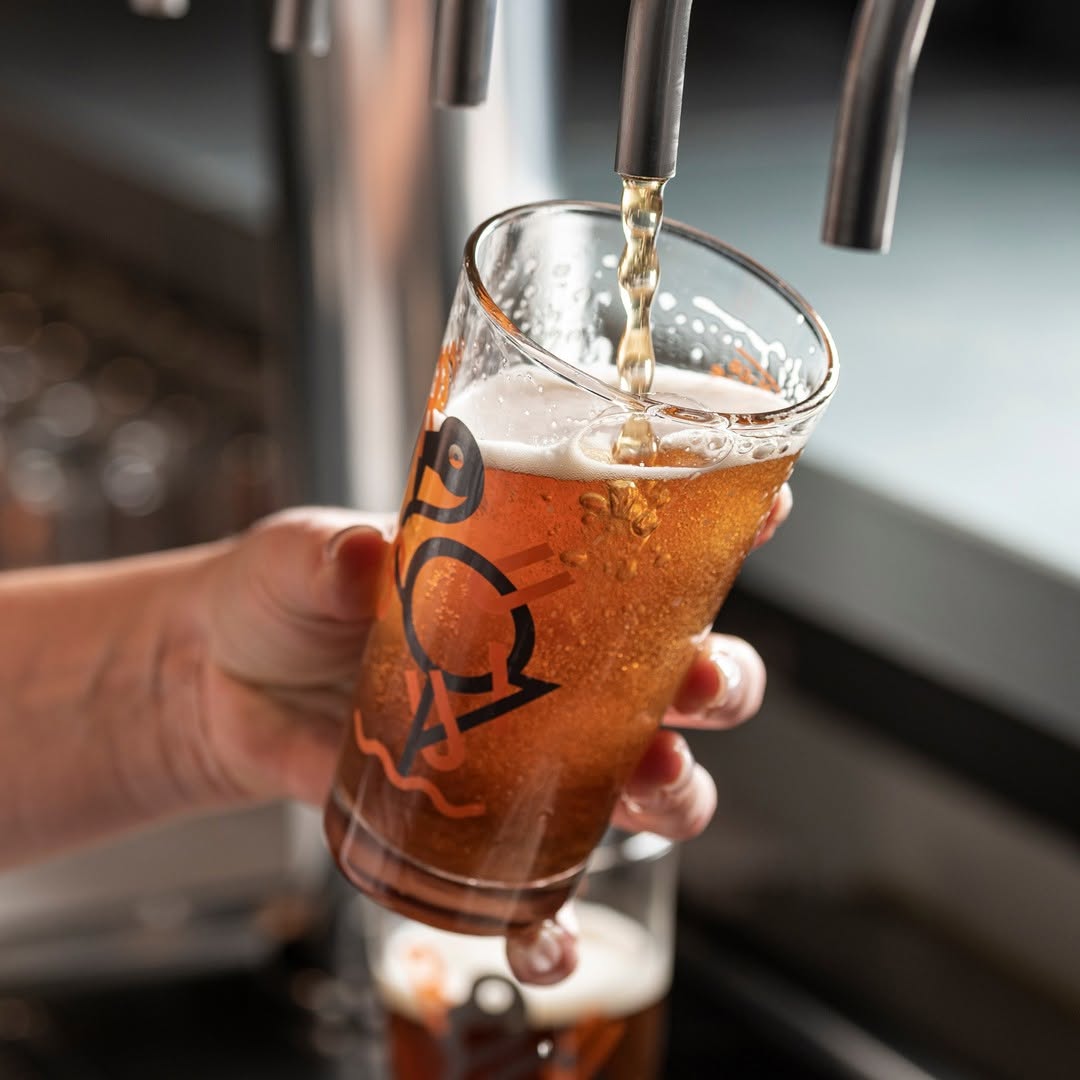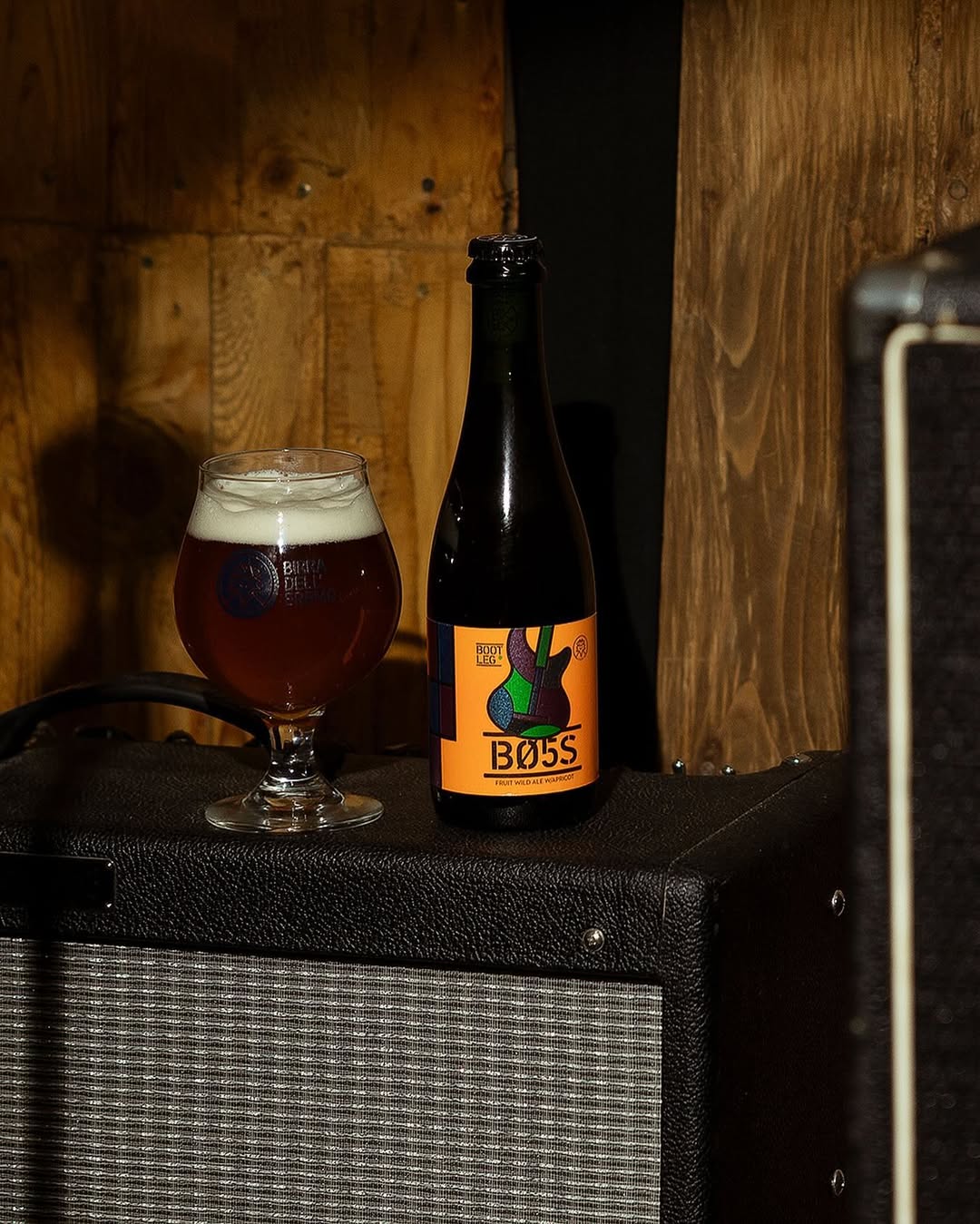Italy obsesses over origin. Cheese must be local, wine estate-grown, pasta shapes regionally correct. But when it comes to beer, few stop to wonder where the wheat comes from in the Peronis, Ichnusas, and Morettis guzzled down by the caseful every night.
Italy’s craft beer scene, however, is alive and flourishing—now it’s time for consumers to catch up. After all, craft beer shares the same values that define Italian agricultural excellence: small-scale production, local sourcing, and a deep sense of place.
Under Italian law, craft beer must be produced by an independent brewery, capped at 200,000 hectoliters annually, and made without pasteurization or microfiltration. While there’s no rule requiring Italian-grown ingredients, the Consorzio Birra Italiana—founded by Coldiretti and led by Birra Baladin’s Teo Musso—advocates for exactly that, tying beer production back to local agriculture.
Craft beer has also presented itself as a social opportunity. In a country grappling with youth unemployment and rural depopulation, the industry fosters entrepreneurship, supports local economies, and offers an alternative to the tourism status quo.
Though Italy’s craft beer scene is growing, these labels can still be hard to find. Your best bet is to look for them in small pubs, independent shops, or—better yet—visit the breweries themselves.
So next time you’re craving something cold and carbonated, skip the usual spritz and go craft. You’ll be choosing sustainability, supporting small producers—and making the cooler choice, too. Here are 20 of Italy’s best craft breweries, at least one from each of the 20 regions, to get you started.
Opperbacco
Abruzzo
Founded in 2009 by agronomist and brewer Luigi Recchiuti, Opperbacco operates from a renovated stable surrounded by olive groves, vineyards, and orchards between the Adriatic Sea and the Gran Sasso Mountains. Their standout “Nature” series features Italian Grape Ales made in collaboration with local wineries, incorporating grapes like Montepulciano and Trebbiano, fermented with native yeasts. Opperbacco also offers a diverse range of beers, including classic lagers and ales.
Birrificio del Vulture
Basilicata
In a region best known for its bold Aglianico wines, Birrificio del Vulture makes a quiet case for beer. Founded to bring beer to la tavola—and into the broader culinary conversation—the brewery crafts thoughtful, expressive styles with a strong sense of place.
Recognized in Slow Food’s 2021 Guida alle Birre d’Italia, their So’ Biologa imperial porter was named a Birra Imperdibile, while Druda, brewed with chestnuts, received the Birra Slow distinction. Both pair beautifully with local flavors—and make clear that beer belongs at the center of the southern Italian table.
Funky Drop
Calabria
At Funky Drop, beer has a soul—and a mascot. Launched in 2022 by four friends from the hospitality world, the brewery pairs international styles with irreverent Calabrese energy. Each beer is embodied by a Funky Beat, a cartoonish character that reflects the brew’s personality and makes the brand instantly recognizable.
The lineup spans styles and moods: Plink, a German-inspired Keller with bready, herbal notes and a soft, sweet finish; PRSDÈ, a saison bright with floral spice, Calabrian bergamot peel, and a subtle tartness; Giggle, a Belgian-style ale with American hops, exotic aromas, and a dry finish; and Strike, a crisp, modern IPA with tropical fruit notes and a firm bitter edge.
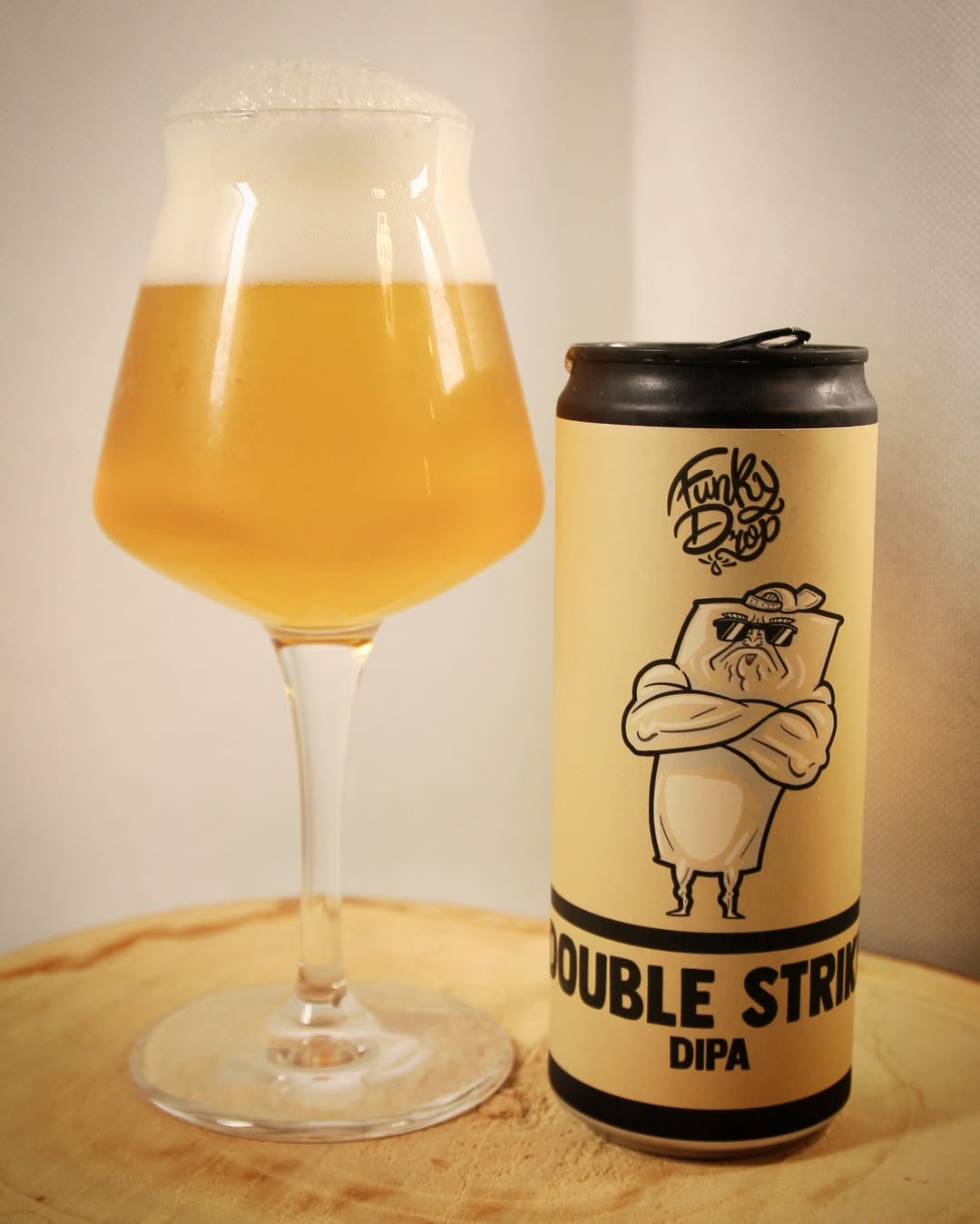
Funky Drop; Courtesy of @_funky_drop_
Birra CIFRA
Campania
At Cifra, every beer is a code—an invitation to “deCIFRAre” your taste. The name means “cipher,” and each brew is titled with three digits that hint at its identity. Take 333 Amalfitana, a crisp pilsner that’s pure summer in a bottle. Unfiltered, unpasteurized, and refermented in the bottle, Cifra’s beers are crafted to evolve over time, gaining complexity with each passing week. The brewery is based just outside Salerno, with a taproom in Penta.
Ca’ del Brado
Emilia-Romagna
Ca’ del Brado, a small brewery just outside Bologna, focuses on wild yeast fermentation and barrel aging, using local ingredients to root their beers in place. “We have been using wheat from the Comunità Grano Alto di Monghidoro (BO). As for barley malt, this year we experimented with the one produced by our ‘neighbor,’ a farmer and winemaker just a few kilometers away from us. The goal is to have most of the raw materials produced in the province of Bologna,” says founder Andrea.
Their name—Brado, from the Greek for “slow” and stato brado, or “wild state”—echoes their untamed approach. Best known for sours, saisons, gose, and Italian Grape Ales, Ca’ del Brado also keeps a few Belgian-style classics in rotation.
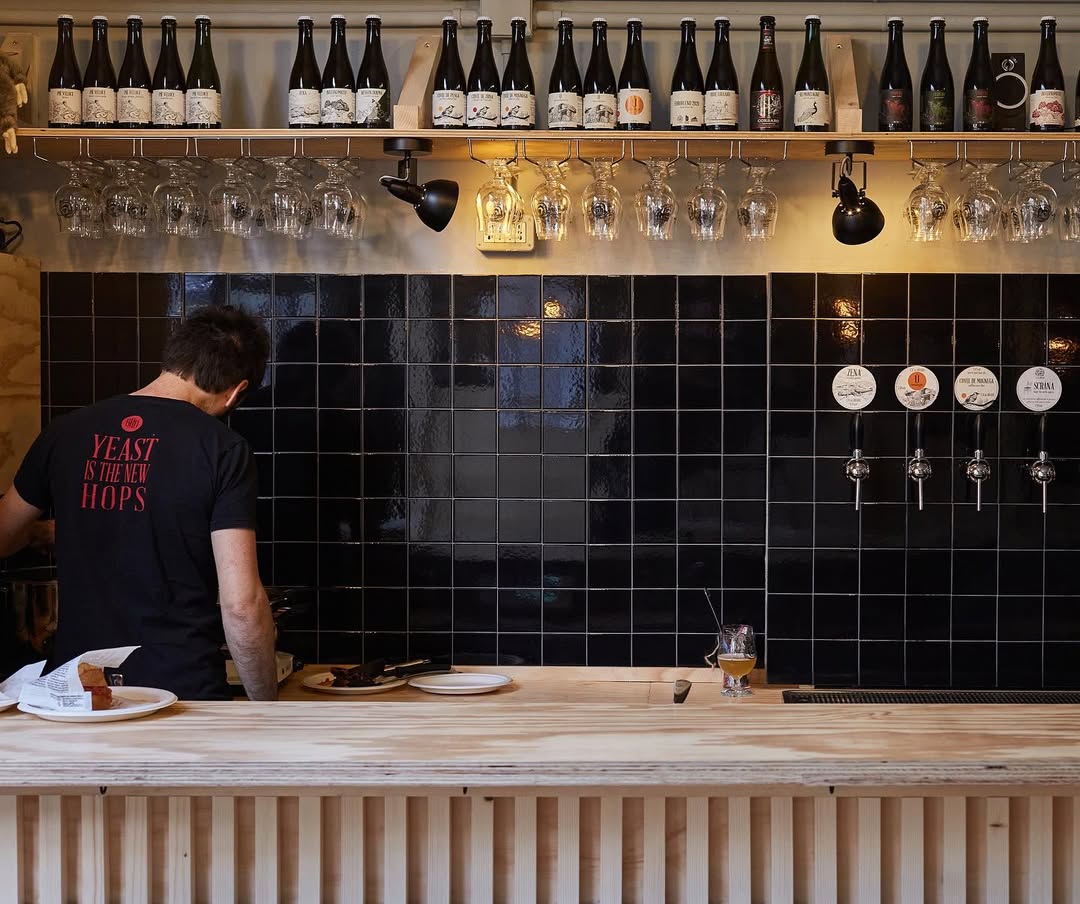
Ca’ del Brado; Courtesy of @cadelbrado
Birrificio Bondai
Friuli-Venezia Gulia
Birrificio Bondai was born inside a former furniture factory in Sutrio, at the foot of Monte Zoncolan. The name—originally a mistaken reference to Australia’s Bondi Beach—stuck, eventually folding into the Friulian phrase bon dai, meaning “alright, come on.” That blend of mischief and meaning defines the brewery’s spirit.
Their taproom serves as a cozy outpost where visitors can drink Bondai beers fresh from the source or pick up cans to go. Among their standout beers are Point Break, a bright, citrusy DDH Pale Ale, and Paura Paura, a fruited Berliner Weisse brewed with raspberry and black currant. Bondai makes beers for après-ski, post-hike, and anyone chasing Friuli’s “bon stâ” feeling.
Eastside Brewing
Lazio
In the once-overlooked town of Latina, three friends turned a local quirk—mineral-rich water—into the foundation for some of Italy’s most creative beers. Though the brewery leans towards American-style beers with “high aromatic impact,” they also work with the traditions of Belgium and the British Isles. From bright, fragrant fruit sours to brooding imperial stouts and niche strong ales brewed in tiny batches, the brewery’s only real limit is imagination.
Sustainability is also built into the process: “All the spent grain from our activity is given to local farms that use it to feed animals,” Luciano says. Since 2022, their taproom—the B-East Side Pub—has become a landmark for craft beer lovers in Latina, with ten ever-rotating taps and a wide selection of Eastside’s bottled and canned creations.
Birrificio Altavia
Liguria
The first agricultural brewery in Liguria, Birrificio Altavia is rooted in the wooded slopes of the Beigua Park, a UNESCO Geopark, where barley is grown and honey is harvested from on-site beehives. Every step of production—from sowing grain to malting—is handled in-house, ensuring a 100% Italian supply chain.
Named after the Alta Via dei Monti Liguri trail that stretches from the Alps to the Apennines, Altavia is a natural stop for trekkers, and their lineup balances tradition and creativity: the Deiva bock draws on German influence with caramel malts and chestnut honey; Tersé is a crisp, dry pils named after a historic chestnut dryer; and Contamusse—a bold American IPA with a Ligurian twist—plays with tropical hops and local slang. Packaging is playful, featuring bold colors and their signature cinghiale logo.
Alder Beer Co.
Lombardy
Alder Beer Co. opened in October 2019 in Seregno, a small city between Milan and Como. Founder Marco Valeriani—a food technologist turned brewer—transformed a long-held dream into one of Italy’s standout breweries, earning Brewer of the Year three times. Alder’s lineup ranges from crisp European lagers to hoppy IPAs, American and Belgian styles, stouts, porters, and beyond. At the attached taproom, just five minutes from the Seregno train station, you can taste it all.
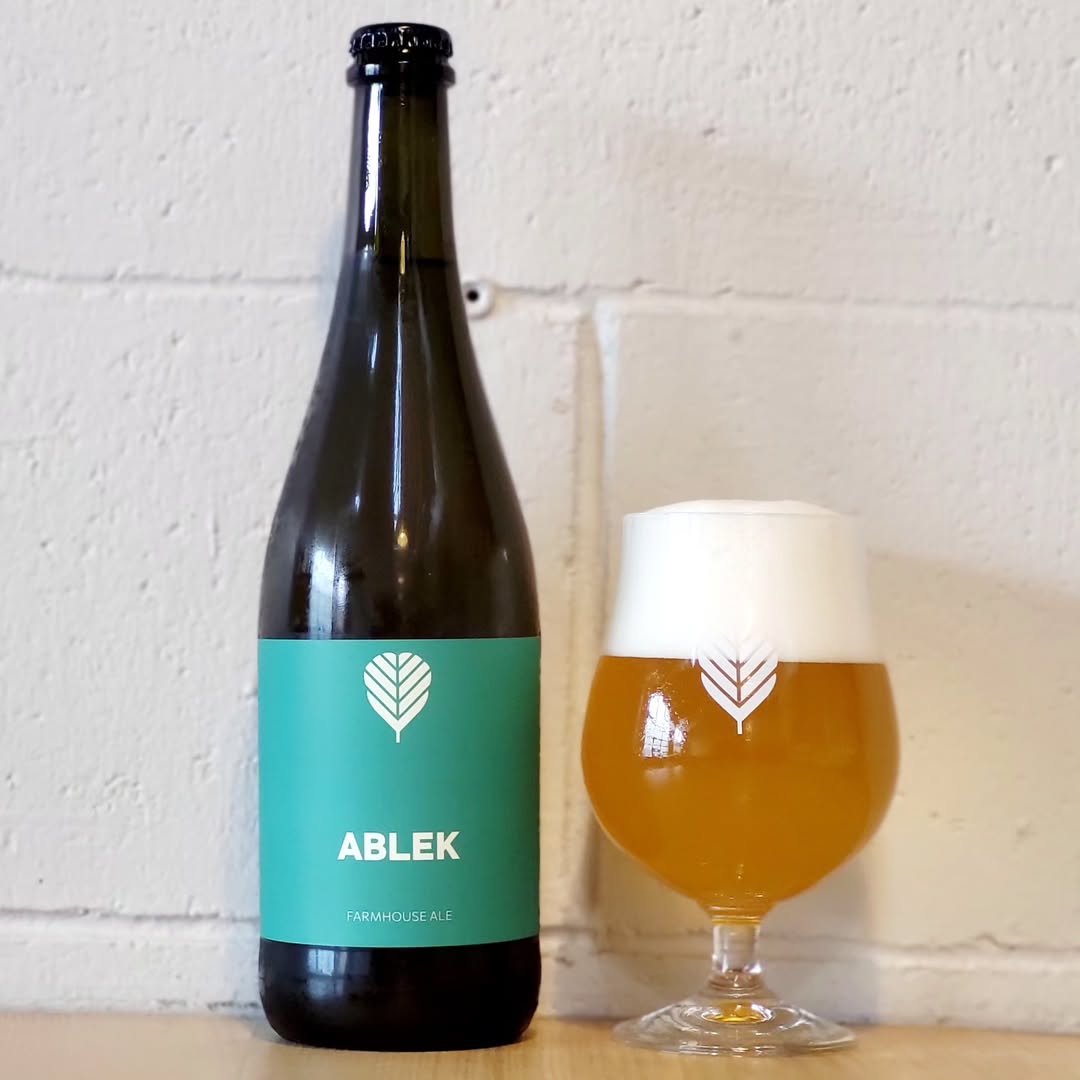
Alder Beer Co.; Courtesy of @alderbeer
IBeer
Marche
Since 2015, IBeer has been operating as an agricultural brewery in the hills of Marche, integrating sustainability into every part of the process—from water and energy systems to the crops they grow. Alongside barley and hops, they cultivate hemp, which finds its way into Grateful Break, a smooth, herbal blanche. Their beers range from crisp lagers and hoppy pale ales to more playful styles like the session IPA-style No Time for Karma and the American IPA Social Lube.
MC77
Marche
Between the Apennines and the Adriatic, MC77 operates from a quiet pocket of the Marche region, not far from Perugia or Ancona. Founders Cecilia Scisiani and Matthew Pomposini met as university students in Rome, where a shared curiosity about beer turned into a long-term pursuit. What began with homebrewing weekends and hops-fueled road trips eventually became a professional project—one with a whole host host of awards and accolades.
MC77’s beers are as thoughtful as they are playful, with names and labels that lean graphic, bold, and a little irreverent. Breaking Hops nods to pop culture, Mild the Gap riffs on British classics, and Ape Regina brings in honey for a balanced blonde ale.
Birrificio Malto Lento
Molise
Malto Lento is the first agricultural brewery in Alto Molise, founded in Castel del Giudice by Melise SRL—an organic farm near the town’s famed apple orchards. Using barley and experimental hops grown onsite—and grains recovered from ancient local crops—the brewery focuses on unfiltered beers made with minimal intervention. It’s part of a community-wide project rooted in shared stewardship, a collaboration between citizens, farmers, the municipality, and designers, all working together to build a future grounded in sustainability here.
Flagship beers include Mellis, a copper-colored Belgian ale with subtle apple notes; Pacifica, a modern American IPA with tropical hops; Elfo, a classic English pale; and Maggiolata, a soft blonde ale with delicate malt sweetness.
Birrificio Elvo
Piedmont / Valle d’Aosta
In the foothills of Monte Mombarone, between Piedmont and Valle d’Aosta, Birrificio Elvo has been producing traditional German-style lagers since 2013. Family-run, the brewery was built from a renovated carpentry workshop in the Elvo Valley and specializes in raw, bottom-fermented beers with a precise, clean profile—and elegant, minimal packaging. The pub and beer shop sit in the center of town, while the brewery and beer garden are a 22-minute drive into the countryside.
Birra Salento
Puglia
In Leverano, Birra Salento brews beers using malt grown between olive trees and grapevines. In collaboration with the University of Salento, they identified two native barley cultivars ideal for the local climate. The result: regional beers that are deeply tied to the land they come from. The brewery is led by Maurizio Zecca, whose father Fernando first worked in a Swiss brewery in the 1960s and dreamed of bringing that knowledge home. Visitors today can take guided tours of the brewery or have a picnic among the hop fields.
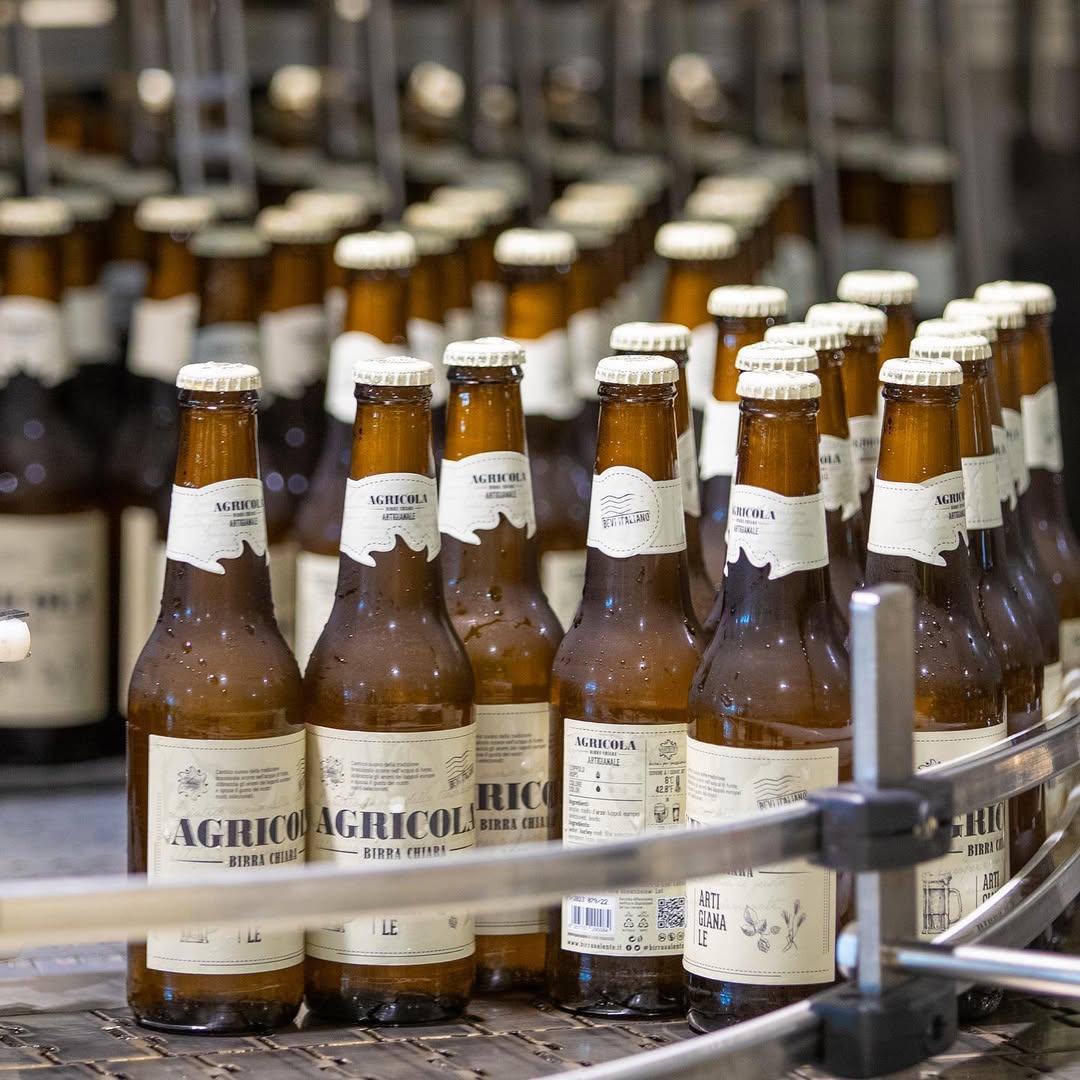
Birra Salento; Courtesy of @birrasalento
Bruno Ribadi
Sicily
Founded in 2016 by three cousins in the seaside town of Cinisi, Bruno Ribadi blends Sicilian heritage with a playful spirit. Their Sicilian Pils is brewed with ancient grains like Timilia, Russello, and Perciasacchi, while the Sicilian Pale Ale adds citrus peel, sumac berries, and pink peppercorn to evoke the island’s sun-soaked intensity.
These beers are crafted for pairing with bold flavors, from street food like pane e panelle to pasta con le sarde. The brewery’s visual identity—quirky, bold, and full of character—mirrors the originality of what’s inside the bottle. Just 11 minutes from the Palermo airport, Bruno Ribadi offers a distinctly Sicilian take on modern craft.
Rubiu
Sardinia
Sardinia’s contender, Rubiu is a brewpub and pizzeria in Sant’Antioco, just an hour from Cagliari. They favor high fermentation and produce all their beers unpasteurized, unfiltered, and free from preservatives, stabilizers, or additives. Some recipes feature dry-hopping to enhance hop aroma and freshness, followed by bottle refermentation for added roundness and depth.
Their Flavia strong ale earned the “Birra Imperdibile” nod in Slow Food’s 2021 guide, and their logo—a stylized pink flamingo—pays homage to the island’s native birds. Visitors can enjoy pizza and beer directly above the fermentation tanks for a direct view into the brewing process.
Brasseria della Fonte
Tuscany
In Val d’Orcia, within the working farm and guesthouse of Agriturismo La Fonte, Brasseria della Fonte is a true farm brewery in every sense: the two-row barley used in at least 70% of their beers is grown just steps from the brewhouse, then malted in a nearby malthouse. Hops, too, are cultivated on site.
“We use this grain in at least 70% of our recipes,” says Samuele, one of the founders. The result? A lineup of beers with an unmistakable sense of place—earthy, elegant, and wholly Tuscan. Guests of the agriturismo can walk the fields that flavor their pint, then sip it under a cypress-shadowed pergola.
5+ (5 piu)
Trentino Alto-Adige
Founded in 2015 after years of homebrewing, 5+ believes the secret to great beer is more than ingredients—it’s the environment behind it. “An excellent product,” they say, “can only be born in a positive space, built on ethics and respect.” The fifth ingredient in their beers, alongside water, malt, hops, and yeast? Passion.
Standouts include their award-winning Double IPA (1st place, Solo Birra 2020), Saison (1st place, KUBO Beer Award 2018), and Oatmeal Stout (2nd place, Mountain Beer Cup 2019).
Birra dell’Eremo
Umbria
Founded in 2012 near Assisi, Birra dell’Eremo has grown from producing just 3,000 liters per year to over 40,000 liters per month. Their beers—which are often available in cans—balance technical precision with expressive character. Notable offerings include Zoe, a crisp, herbaceous Keller Pils, and FIJI, a double dry-hopped pale ale with bright tropical notes. With a focus on high-quality ingredients and pure local water, Birra dell’Eremo earned the Birraio dell’anno award in 2023.
CRAK Brewery
Veneto
Since opening in 2015 just outside Padova, CRAK has followed the ethos of its flagship Guerrilla® beer: fight for what you believe in. Now a fully independent agricultural craft brewery, CRAK grows all of its own barley and cultivates ten hectares of experimental hops, aiming to supply the majority of its own ingredients. “We are a farm-based brewery and produce 100% of our barley,” says Claudio. “We’re also growing about 10 hectares of experimental hops, which should cover at least 60% of our needs.”
At the core of CRAK’s identity is a deep love of hops—especially expressed through their signature DDH IPAs. In 2017, they became the first Italian brewery to travel to Yakima Valley to personally select their hops during harvest. CRAK’s presence stretches across the region, with a Taproom in Campodarsego (complete with pool table) and a second outpost, Casana, on the outskirts of Padova.
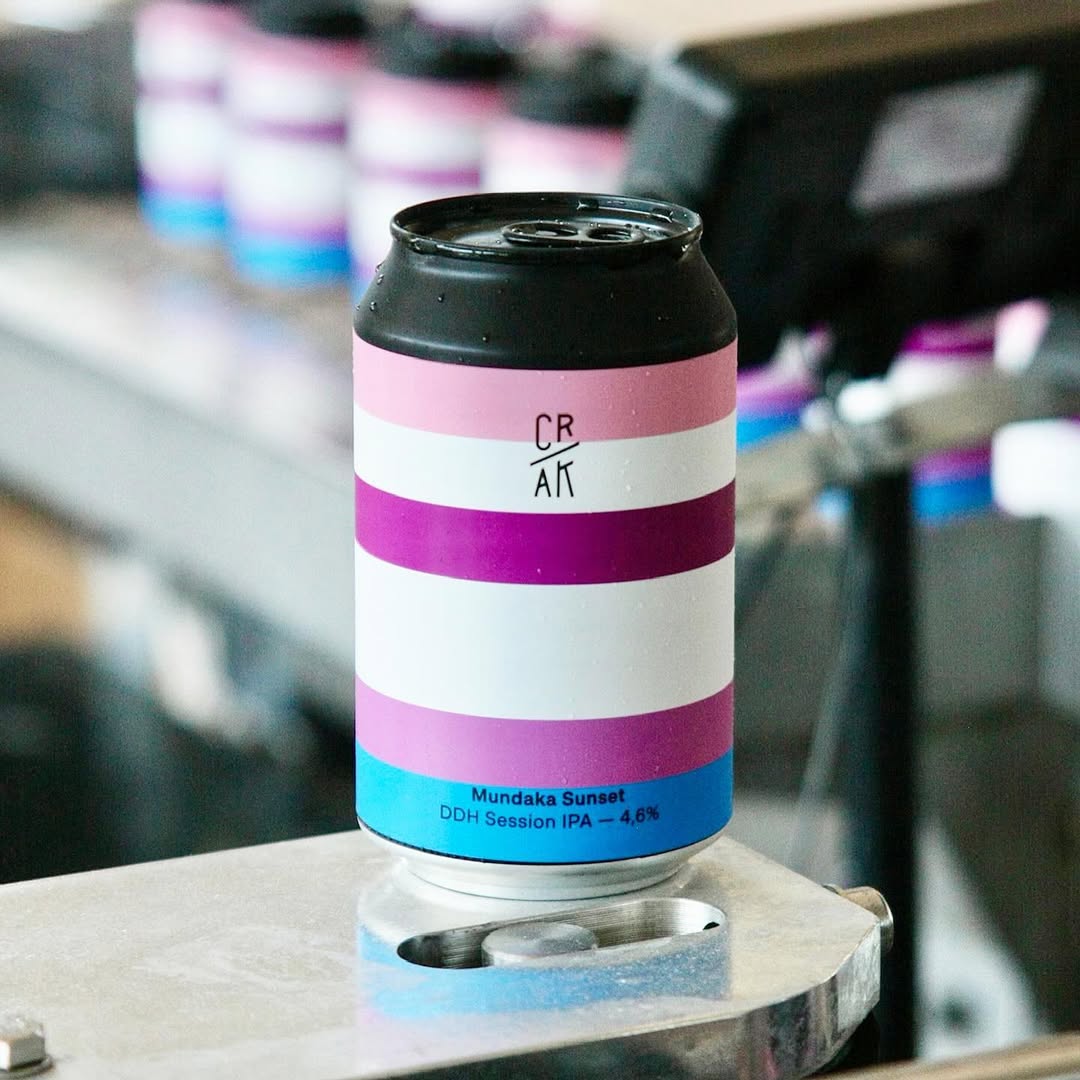
Crakbrewery; Courtesy of @crakbrewery
